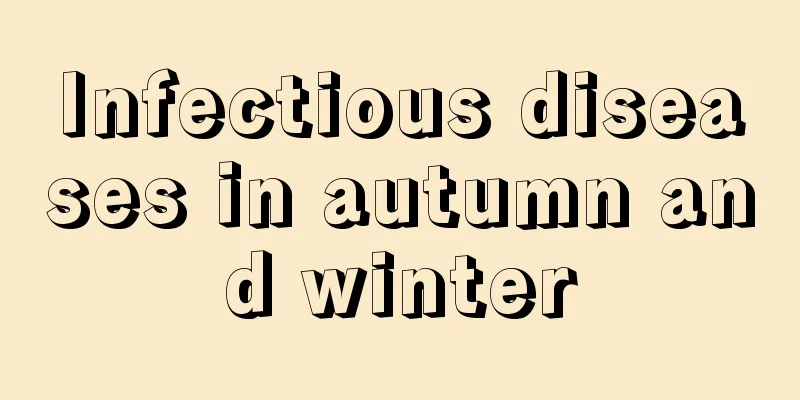Can toothache cause fever?

|
Although toothache is not a serious problem, it is very difficult to bear when it occurs and it will continuously stimulate the gums. The gums are very fragile, so the stimulation will cause constant pain and bursts of excruciating pain. Some toothaches may even cause fever due to severe symptoms. In addition, there will be intermittent pain and the pain at night will be more severe than in the morning. You should go to the hospital in time to check the cause and then treat it. Main symptoms Pain is the main symptom, which is severe and unbearable. The following features : Spontaneous pain, paroxysmal aggravation, intermittent attack, severe pain in the affected tooth without any external stimulation, short pain attack time and long relief time in the early stage, as the disease progresses, the pain attack time is long and the relief time is short in the late stage, and finally there is no relief period; The pain is more severe at night than during the day, especially when lying flat. In the early stage, both cold and hot stimulation can cause the pain to worsen. In the late stage, cold stimulation not only does not stimulate pain, but temporarily relieves the pain. Therefore, it is common for patients to hold cold water in their mouths or breathe cold air to relieve pain. 1. Pulpitis Some patients with pulpitis feel obvious pain when brushing their teeth with cold water, but feel less pain when using warm water; some patients also feel pain when eating or drinking hot soup, and have to wait until the soup cools down before drinking it; if the condition continues to develop, some patients will feel pain for no reason, especially when lying down to sleep at night, the pain will be more severe and even affect sleep. This is what doctors often call "pain caused by hot or cold stimulation, spontaneous pain at night." The inflammation site of pulpitis is in the pulp cavity in the center of the tooth. The medicine can only reach the tooth through the tiny apical foramen. It can be said that no medicine can completely cure pulpitis, so the saying that pulpitis "has no cure" is reasonable. Many pulpitis patients try all kinds of medical treatment when they have toothache. Unprofessional doctors randomly prescribe antibiotics for the patients, but these antibiotics turn out to be completely ineffective. Painkillers have a certain effect on the pain caused by pulpitis, but when the pain is severe, the effect of painkillers is not obvious. Local analgesics such as "Yatong Pills" may be effective when the pain is mild, but they are not a good solution. When pulpitis occurs, it is best to see a dentist to treat and handle the diseased tooth. If you are already in pain before seeing the dentist, you can take oral painkillers, but other medications are not recommended. 2. Apical periodontitis Generally speaking, as pulpitis progresses, bacteria invade the tissues around the root apex and cause apical periodontitis. In the early stages of inflammation, patients will feel their teeth are floating, are prone to biting the diseased teeth, and feel pain when biting their teeth. In the early stage, since the scope of inflammation is relatively small, the use of antibiotics and anti-inflammatory analgesics may help control inflammation, but the significance is not great. Professional dentists still emphasize local drainage and local medication. Doctors usually dredge from the teeth to the tissues around the root apex and place anti-inflammatory and analgesic drugs locally, such as camphor phenol. If patients with apical periodontitis do not receive timely treatment, the inflammation will spread and they may experience redness, swelling, heat and pain in the cheeks, suppuration, and even fever and body pain. At this time, it is necessary to use antibiotics and anti-inflammatory analgesics for the whole body (broad-spectrum antibiotics and metronidazole are commonly used drugs); those who are in pain can add painkillers such as analgesics, and those with severe pain can also inject local anesthetics such as procaine around the diseased teeth. 3. Pericoronitis Pericoronitis often occurs when mandibular wisdom teeth are incompletely erupted or impacted, causing inflammation of the soft tissue around the crown. In the early stages of inflammation, patients feel swollen and painful gums, and the pain is obvious when chewing, swallowing, or opening their mouths. The pain worsens as the disease progresses. In severe cases, patients may be unable to open their mouths to varying degrees, or even have their jaws clenched. Treatment is mainly local. Normal saline and 2% hydrogen peroxide are usually used to rinse the area, and then iodine glycerin is placed. It is best to do it 1 to 3 times a day, and then rinse the mouth with chlorhexidine mouthwash. If an abscess is formed, it should be promptly incised and drained. If the cheeks become red, swollen, hot and painful, or even the whole body becomes feverish and painful, antibiotics and anti-inflammatory analgesics can be used. Commonly used drugs are broad-spectrum antibiotics and metronidazole. |
<<: Will I be allergic to mosquito bites?
>>: Can secondary orthodontic treatment be successful?
Recommend
What should I do if I have a hard, painful pimple?
Some people like to squeeze pimples on their face...
What causes directionality?
In movies and TV shows, we often see heroines who...
There are hard lumps on my face due to inflammation
I believe we have all experienced the feeling of ...
What are the early symptoms and signs of laryngeal cancer? Can laryngeal cancer be cured? How long can one live?
Laryngeal cancer (carcinoma of laryngology) is a ...
What is the orthodontic process like?
Crooked teeth can affect a person's facial im...
Eat peanuts after eating garlic
When it comes to garlic, everyone knows that it i...
The treatment effect of gallbladder cancer can be improved
The treatment effect of gallbladder cancer can be...
What are the tumor marker tests for bladder transitional cell carcinoma
Bladder transitional cell carcinoma is a type of ...
Symptoms of vomiting blood due to advanced brain cancer
Are the symptoms of vomiting blood in advanced br...
What are the side effects of Moringa seeds?
Moringa seeds are a food with extremely high nutr...
What is the reason for numbness in feet and head
Many people have experienced numbness in the toes...
What should I do if the high heels are too small and squeeze my feet?
After women enter society, they have to learn to ...
How to use a disposable urinary catheter?
With the widespread use of disposable devices in ...
Will kidney cancer metastasize after one kidney is removed?
Renal cancer patients may still experience metast...
How to reduce swelling of bruised lips the fastest
Lips are a relatively fragile part of the body. I...









